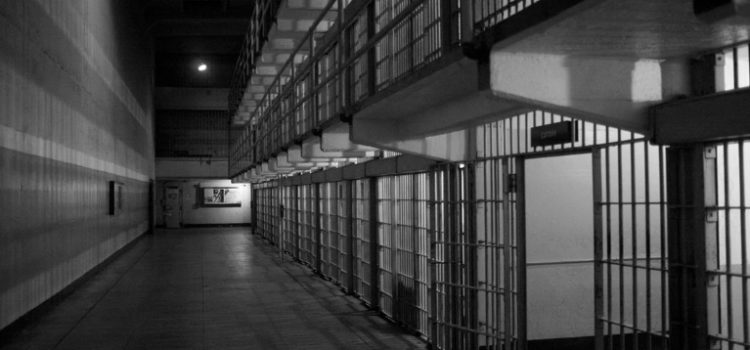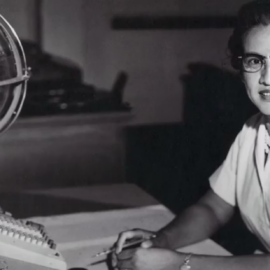

This article is an excerpt from the Shortform book guide to "The Other Wes Moore" by Wes Moore. Shortform has the world's best summaries and analyses of books you should be reading.
Like this article? Sign up for a free trial here .
Why was Wes Moore in prison? What was Wes Moore’s sentence?
For the other Wes Moore, prison was his future thanks to his part in a jewelry story robbery that ended in murder. Author Wes Moore visits Wes in prison to learn how their lives took such different directions.
Read on to learn more about Wes Moore, prison, and denial.
The Other Wes Moore: Prison and Prestige
In 2000, the Baltimore Sun ran several stories about two young men named Wes Moore. One story was filled with accolades for Wes Moore, a recent Johns Hopkins University graduate who had received the prestigious honor of becoming the first black Rhodes Scholar—an academic postgraduate award granting fellows the opportunity to study at Oxford University in England—in university history. The others stories were about Wes Moore, prison inmate because a jewelry store burglary that resulted in the heinous murder of an undercover police officer. In these stories, Wes Moore was the target of a massive manhunt and eventually one of the suspects charged in the crime.
The glaring disparity in their trajectories caused Moore to wonder where their paths had diverged. He wondered what had allowed him to succeed and the other Wes Moore to end up serving a life sentence in prison. He decided to reach out via letter to the prison and was surprised to receive a response shortly after.
What started was a friendship and a journey into their pasts. Moore began to visit Wes in prison. He felt there was something to try to understand regarding their life paths. He believed there was a larger meaning to their intersecting origins and diverging futures.
Wes Moore: Prison Sentence
A year after the shooting of Sergeant Bruce Prothero, Wes Moore sat at a table waiting for the jury’s verdict. He was the only one of the four involved in the incident who’d gone to trial. The other three had accepted plea deals. In Tony’s case, his confession to being the shooter had saved him from execution. All three men had received life in prison without parole. Wes knew his fate would be the same if he was found guilty.
Wes went to trial because he said he was innocent. He contended he wasn’t there the day of the shooting. His lawyer defended him by saying Wes had been calm when questioned by the police when they canvassed his neighborhood. He hadn’t been a suspect at the time. The lawyer insisted that Wes’s only error was accompanying Tony to Philadelphia without asking what Tony was running from. The last line of defense was Wes’s conversion to Islam in the year he’d been awaiting trial in prison.
The prosecution fired back with eyewitness testimony that placed Wes at the crime, despite the masks worn. The police had also found a necklace with Wes’s DNA on it. The defense claimed Tony had borrowed the necklace.
The jury deliberated for only three hours. When they walked into the courtroom that day, none of them looked at Wes. He knew he was going to jail for the rest of his life.
Wes had never thought much about making plans for the future. His life was one of survival. On the streets, survival sometimes included a few stints in prison for possession and other drug-related crimes. But he’d never imagined this was how things would turn out. Now, Wes thought about the rest of his life, a life without plans. His path was carved in stone. Wes Moore: prison inmate.
Conversations About Incarceration
When author Wes Moore spoke with Wes Moore (prisoner), he couldn’t believe it when Wes said he wasn’t there the day of the robbery and murder, the crimes for which he was serving this life sentence. No matter how many times he heard it, Moore was always shocked at Wes’s inability to admit what he’d done.
More than once, Moore questioned what he was doing at the prison. After three years, he realized that Wes was still just a stranger convicted of murder. He didn’t really know Wes at all. Moore wondered whether Wes’s repeated mantra of innocence was an attempt to wash it from his mind. If he said it enough, did Wes think he could make it true?
Moore avoided the topic and asked if Wes thought that people were products of their environments. Wes said he thought people were products of the expectations others had for them. What others expected from you tended to be what you believed about yourself. Moore agreed, but he knew it wasn’t that easy. Other’s influence was powerful, but at the end of the day, everyone was responsible for their own actions.

———End of Preview———
Like what you just read? Read the rest of the world's best book summary and analysis of Wes Moore's "The Other Wes Moore" at Shortform .
Here's what you'll find in our full The Other Wes Moore summary :
- How two men from similar communities can have vastly different lives
- What led one Wes Moore to become a Rhodes Scholar
- What led the other Wes Moore to a life sentence







Thank you for your article. Can you tell me how my students can write a letter to the Wes Moore in prison? I know he is an inmate at Jessup Correctional Facility. Is there a specific address where we can send the letters?
Thank you,
James Pasternak
English Teacher, Bodine High School for International Affairs
Philadelphia, PA 19123
Hi Mr. Pasternak! Thanks for reading our post. That information wasn’t in the book we were blogging about, but I found this link from the Maryland Department of Public Safety and Correctional Services. Hope it helps!